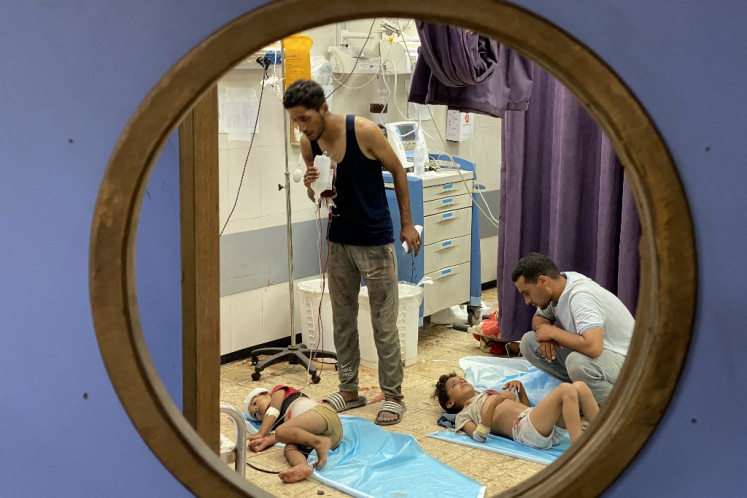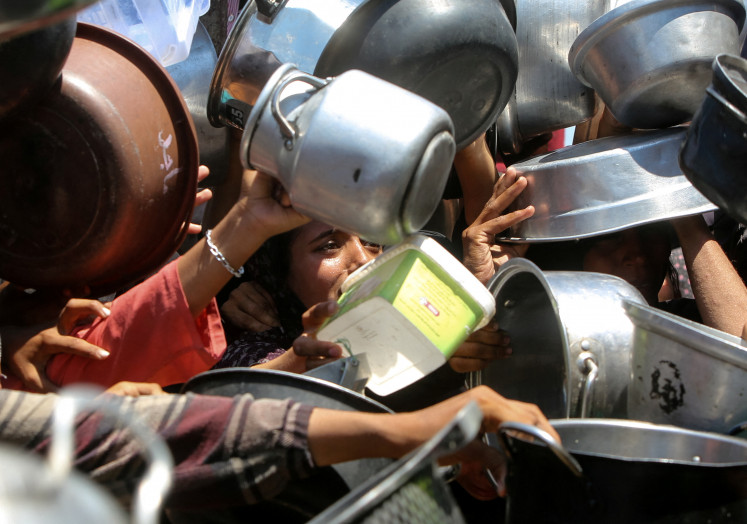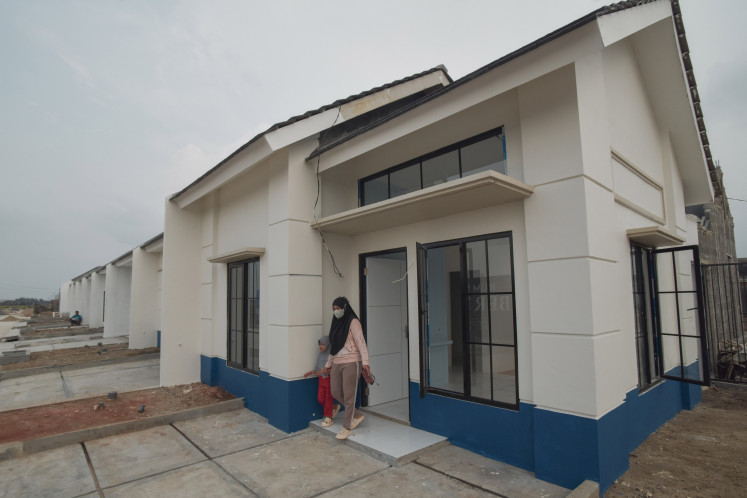Popular Reads
Top Results
Can't find what you're looking for?
View all search resultsPopular Reads
Top Results
Can't find what you're looking for?
View all search resultsJakarta on alert for disease outbreak after Depok scare
Following an outbreak of hepatitis A in the neighboring satellite city of Depok in which 90 students were infected, the Jakarta Health Agency is on alert to a possible outbreak in the capital
Change text size
Gift Premium Articles
to Anyone
F
ollowing an outbreak of hepatitis A in the neighboring satellite city of Depok in which 90 students were infected, the Jakarta Health Agency is on alert to a possible outbreak in the capital.
The agency head, Dien Emmawati, said on Friday that Jakarta was safe from the Depok pandemic, adding that if a case of hepatitis was found in the capital, the authorities would quarantine the area.
“An area in which hepatitis A is detected should be quarantined within less than 24 hours,” she told The Jakarta Post. “I have assigned officers at the agency to be on alert to a possible outbreak,” she added.
Hepatitis A, which is transmitted through contaminated food and beverages, attacks the liver but is less severe than types B, C and E.
Hepatitis A patients can recover within between seven and 10 days, but the virus can turn chronic if patients have been infected with other hepatitis types.
On Wednesday, a hepatitis A outbreak hit a school in Depok, infecting 90 of its students. School officials said that the virus had been transmitted via food sold at a nearby outdoor food vendors.
The vocational school does not have its own canteen, so students usually eat at nearby food stalls outside of the school building.
After the outbreak, the school administration closed the school for one week to prevent the disease from spreading.
The Depok Municipality administration declared the city in a state of alert over the incident.
Two weeks earlier, the same disease infected 24 students and residents living near Parahyangan University in Bandung, West Java. The fast spread of the disease was believed to be linked to unhygienic food sold around the campus, which all of the patients had consumed.
The patients were taken to the The Borromeus Hospital and Ciumbuleuit community health clinic.
Dien said that the disease was preventable. “We decrease the chance of contracting the disease by up to 70 percent just by washing our hands regularly.”
She said that this simple yet efficient practice was the key to preventing the disease.
The disease commonly infects people living in large social compounds such as schools or dormitories that have poor sanitation.
“In school, not all teachers can monitor whether all of the students wash their hands regularly, or not,” she said.
“If all the residents share the healthy habit, they will be immune to the pandemic,” Dien said.
Dien said that her agency had suggested that all schools encourage their children and staff to improve their hygiene. “I have sent letters to schools in Jakarta, encouraging them to check that their students are washing their hands,” she said. (lfr)










